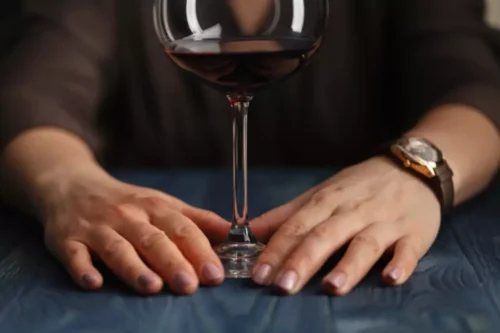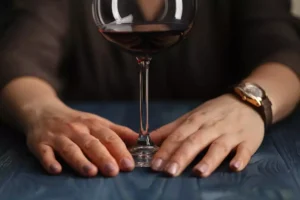
Chronic dehydration due to alcohol consumption can lead to kidney damage and increase the risk of kidney stones and urinary tract infections. Lastly, dehydration can delay muscle recovery after physical activity. When muscles are dehydrated, they are more susceptible to damage and injury, which can lead to delayed recovery and increased muscle soreness. If you experience any of these symptoms, seek medical attention immediately. Dehydration can be dangerous and even life-threatening if left untreated. Dehydration may also impair blood sugar response in some, such as those with type 2 diabetes.
Why does drinking alcohol cause dehydration?

When you’re drinking more than usual, it’s important to remember to consume alcohol responsibly (for both your health and safety!). Alcohol is a diuretic, which means it moves fluid out of your body and can easily dehydrate you. Not only is staying well-hydrated key to your long-term health, but it can also help you avoid uncomfortable hangover symptoms.
What To Do if You’re Dehydrated From Alcohol

While any kind of alcoholic drink will dehydrate you to at least some extent, those with higher alcohol content will cause more dehydration. This includes most hard liquor like whisky, vodka, rum, and gin. These are all over one-third alcohol in total content and thus are more likely to dehydrate you. Fortunately, researchers have discovered these effects are not sustained over multiple drinks. The diuretic effects are greatest as the level of alcohol does alcohol dehydrate you in the body rises, but production of ADH recovers as the alcohol is metabolized.
Moderate Dehydration
- Not only does drinking alcohol while exercising increase the risk of injury, but it also can exacerbate dehydration related to physical activity.
- Over time, these changes can become habits and help correct dehydration issues.
- In addition, increased urination can cause the loss of electrolytes, especially potassium and sodium, which are crucial for maintaining the body’s fluid balance.
- And for 80 kilograms, about 80 millilitres per hour, and so on.
- You can also pair the listed drinks with plenty of water throughout the day to help you stay hydrated.
- When drinking alcohol, especially in hot weather, avoiding dehydration is very important.
- Again, instead of drinking large quantities of water all at once, you may want to sip on fluids throughout the day as it may be easier for your body to handle.
Letting thirst be your guide is an adequate daily guideline for most healthy people. But if you’re experiencing signs of moderate or severe dehydration, it’s important that you seek medical treatment immediately. An intravenous hydration (IV) can help replenish fluids and a doctor can run tests. Whether you’re exercising or just out in the heat, sweating causes a loss of fluids and electrolytes. Unless you drink more water to replenish what you’ve lost, it can lead to dehydration. Moderating your intake of the beverages listed above and drinking plenty of water can help prevent dehydration.
Consuming one beer leads to a 62% increase in urine produced compared to having a glass of water. All types of alcoholic drinks cause dehydration to an extent. However, alcohol’s dehydrating effects will be somewhat reduced in some of the “lighter” alcoholic drinks.
- These include increased facial lines, oral commissures (lines around the mouth), and increased visibility of blood vessels.
- Meanwhile, consuming 269 mg of caffeine, or about 3 cups of coffee, didn’t affect fluid balance (3, 4).
- If you notice a dry mouth or other signs of dehydration, stop drinking alcohol and prioritize hydration.
- That’s why it’s important to increase water intake during hot weather or when you’re ill.
- Sports drinks or other rehydration solutions can help restore electrolyte losses from sweating as well.
Boost Your Immunity: Foods and Supplements for …
Higher blood sugar may also cause the body to urinate more to get rid of this excess sugar, which can influence dehydration. The extent of these effects and how long they last may vary. Research from 2017 indicates that low levels of caffeine ingestion do not cause dehydration. Participants who consumed over 500 milligrams (mg) of caffeine daily showed disruptions in fluid balance from the diuretic effects https://ecosoberhouse.com/article/can-alcoholism-be-cured/ of coffee. Liquor tends to have a much higher alcohol content and significantly less liquid than other alcoholic drinks, which can contribute to dehydration.
Electrolytes for Endurance & Performance: What …

“It’s important to replenish fluids after drinking, or better yet, while drinking,” Sternlicht says. If you are experiencing dry mouth or skin, headaches, muscle cramps, or dark-colored urine, these are signs of dehydration. You can reverse dehydration by taking in more fluids, but some people may be at risk of complications. If you or someone else is experiencing these symptoms, seek immediate medical attention. Intravenous (IV) fluids may be required to stabilize you if you’re experiencing severe dehydration.
